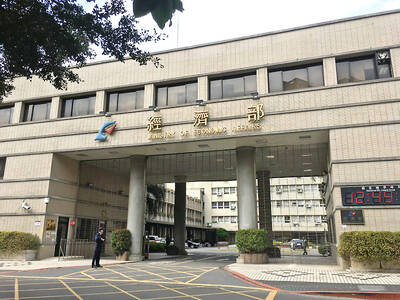The Mainland Affairs Council (MAC) said yesterday it will temporarily ban China's Xinhua News Agency and the People's Daily from sending journalists to Taiwan because the two media outlets only air opinions from the "extreme sides of Taiwan's political spectrum."
Council Chairman Joseph Wu (
The two official Chinese media outlets' coverage on Taiwan news "has not helped China understand Taiwanese society at all," he said.
The council's original aim of permitting Chinese journalists to come to Taiwan was to promote mutual understanding between China and Taiwan, Wu explained.
However, the unbalanced reports written by the journalists from Xinhua and the People's Daily on political affairs in Taiwan have not helped the Chinese public know more about Taiwan, according to Wu.
"Xinhua and the People's Daily are state-controlled media. Their coverage on Taiwan has been very unhelpful, extreme and negative over the years ... Their reports did not truthfully reflect the voice of the people of Taiwan," Wu said. The official stressed the move was not a setback for press freedom.
The journalists from Xinhua and the People's Daily collaborated with China's agenda of political propaganda and their reports often "distorted the truth," said a statement released by the MAC.
"Apparently, these journalists have lost the neutral stance their profession requires. They intend to mislead the Chinese public and they worsen misunderstandings between Taiwan and China," read the statement.
MAC spokesman You Ying-lung (
Wu told reporters in Wulai that some media outlets in China are controlled by the state, but other unofficial outlets aren't.
"We do not exclude the possibility of allowing [unofficial] news agencies to send reporters to Taiwan," Wu said.
Noting the government will not completely ban Chinese reporters from coming to Taiwan, Wu nevertheless pledged to "carefully evaluate" cross-strait cultural exchanges to ensure that they increase mutual understanding between Taiwan and China.
Commenting on the MAC's decision, Vice President Annette Lu (
"But it is not too late to take the step now," added Lu, who called the decision a move to defend Taiwan's national security.
Beijing strictly blocks all Taiwanese news Web sites so that people in China have no access to Taiwan's local news coverage -- restricting the Chinese' public's knowledge of Taiwan.
Apart from Xinhua and the People's Daily, three Chinese media outlets, including CCTV, the China News Agency and China National Radio, also have reporters in Taiwan. Each of them is allowed to send two reporters to Taiwan. The news agencies rotate their reporters in Taiwan each month.
The government first permitted Chinese media to send reporters to Taiwan in August 2000. A MAC official said the council has communicated with Xinhua and the People's Daily journalists regarding their reports.
also see story:
Opposition slams MAC's ban on Chinese reporters

LIMITS: While China increases military pressure on Taiwan and expands its use of cognitive warfare, it is unwilling to target tech supply chains, the report said US and Taiwan military officials have warned that the Chinese People’s Liberation Army (PLA) could implement a blockade within “a matter of hours” and need only “minimal conversion time” prior to an attack on Taiwan, a report released on Tuesday by the US Senate’s China Economic and Security Review Commission said. “While there is no indication that China is planning an imminent attack, the United States and its allies and partners can no longer assume that a Taiwan contingency is a distant possibility for which they would have ample time to prepare,” it said. The commission made the comments in its annual

DETERMINATION: Beijing’s actions toward Tokyo have drawn international attention, but would likely bolster regional coordination and defense networks, the report said Japanese Prime Minister Sanae Takaichi’s administration is likely to prioritize security reforms and deterrence in the face of recent “hybrid” threats from China, the National Security Bureau (NSB) said. The bureau made the assessment in a written report to the Legislative Yuan ahead of an oral report and questions-and-answers session at the legislature’s Foreign Affairs and National Defense Committee tomorrow. The key points of Japan’s security reforms would be to reinforce security cooperation with the US, including enhancing defense deployment in the first island chain, pushing forward the integrated command and operations of the Japan Self-Defense Forces and US Forces Japan, as

‘TROUBLEMAKER’: Most countries believe that it is China — rather than Taiwan — that is undermining regional peace and stability with its coercive tactics, the president said China should restrain itself and refrain from being a troublemaker that sabotages peace and stability in the Indo-Pacific region, President William Lai (賴清德) said yesterday. Lai made the remarks after China Coast Guard vessels sailed into disputed waters off the Senkaku Islands — known as the Diaoyutai Islands (釣魚台) in Taiwan — following a remark Japanese Prime Minister Sanae Takaichi made regarding Taiwan. Takaichi during a parliamentary session on Nov. 7 said that a “Taiwan contingency” involving a Chinese naval blockade could qualify as a “survival-threatening situation” for Japan, and trigger Tokyo’s deployment of its military for defense. Asked about the escalating tensions

The Ministry of Economic Affairs said it plans to revise the export control list for strategic high-tech products by adding 18 items under three categories — advanced 3D printing equipment, advanced semiconductor equipment and quantum computers — which would require local manufacturers to obtain licenses for their export. The ministry’s announcement yesterday came as the International Trade Administration issued a 60-day preview period for planned revisions to the Export Control List for Dual Use Items and Technology (軍商兩用貨品及技術出口管制清單) and the Common Military List (一般軍用貨品清單), which fall under regulations governing export destinations for strategic high-tech commodities and specific strategic high-tech commodities. The